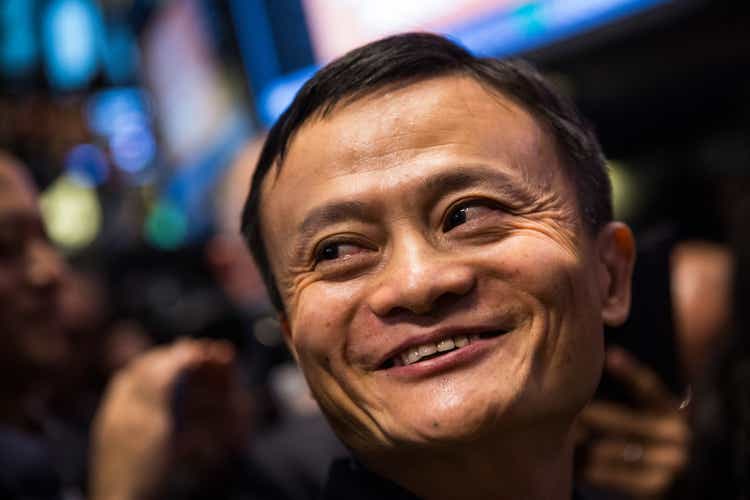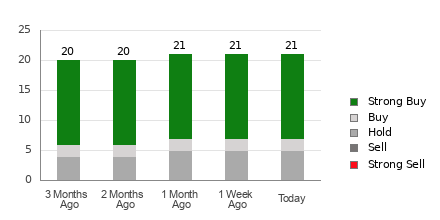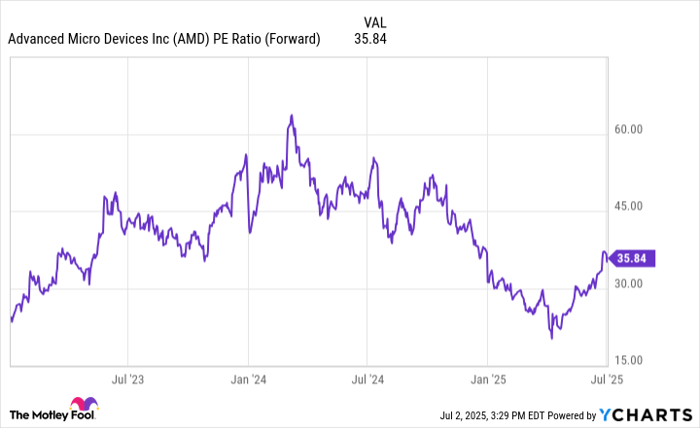
This week marked a resurgent rally in Chinese internet stocks, a welcome change following months of losses. The remarkable turn of events began with the news that Jack Ma and Chairman Joe Tsai demonstrated their confidence in the market by purchasing Alibaba (BABA) stock. Jack Ma acquired shares worth a staggering $50 million, while Joe Tsai secured $150 million worth. This bold display of support from insiders sparked a notable surge in the stock, propelling it upwards on Monday, Tuesday, and Wednesday, albeit conceding some gains on Thursday.
The sheer fact that Jack Ma personally invested in Alibaba shares represented a pivotal shift in the China narrative. In November, there were speculations about Jack Ma planning to execute a substantial stock sale. This news coincided with the release of the company’s September quarter earnings on November 16. However, dispelling earlier rumors, Ma later divulged that he no longer intended to enter into a sale transaction. This revelation was eclipsed by the recent unprecedented disclosure of his purchase of shares worth a significant $50 million!
The exact catalyst for Jack Ma’s change of heart remains a mystery. Notably, the period preceding Ma’s purchase announcement witnessed a slide in BABA’s stock price to nearly all-time lows. One could speculate that this downturn might have influenced Ma’s decision to buy rather than sell. The author even has a pet theory that management might have instituted a dividend to dissuade Ma from selling, although this remains purely speculative at best.
The monumental decision by Jack Ma to execute a complete U-turn breathed new life into Alibaba and the Chinese shares at large. Since the revelation, KraneShares’ CSI China Internet ETF (KWEB) has surged by 8.3%, with BABA enjoying an even more substantial increase. The insider purchases at Alibaba seemed to foster a notion that the Chinese “smart money” believes their nation’s equities are undervalued. Evidently, Chinese stocks present a more affordable investment opportunity compared to their international counterparts. On average, components of the Hang Seng Index trade at 7.8 times earnings, with non-tech Chinese stocks trading even lower. In stark contrast, stocks within the MSCI All-World Index currently trade at 19 times earnings. This suggests that Chinese tech stocks are trading at a staggering 59% discount to global equities, disregarding potential differences in risk, profitability, and growth.
The undeniably attractive valuation of Chinese stocks has long been a widely acknowledged financial reality. However, since the commencement of China’s bear market in 2021, investors have harbored reservations concerning the country’s financial risks. The rationale used to assert that China is particularly precarious has evolved over time, yet the overriding perception of magnified risk has endured. Initially, it was the tech crackdown, succeeded by delisting panic, and 2022’s COVID lockdown. Not long after, concerns over a potential Taiwan invasion surfaced. Most recently, the U.S./China chip war has fueled unease. While some hazardous situations have since dissipated, others such as the Taiwan and chip conundrums persist. Nevertheless, the consensus on China demanding a 59% discount to global equities remains steadfast.
The recent insider purchases could undoubtedly signal a shift in this prevailing consensus. Notably, the longstanding perception of extraordinary risk in China was partly bolstered by Chinese officials’ seeming efforts to expatriate capital from the country. Reports of officials surreptitiously channeling money through Macau casinos, engaging total strangers for remittances under the Party’s nose, and parking funds in Vancouver condos fostered the impression that, in China, “insiders want out.”
However, this week witnessed a nascent transformation. With $200 million worth of insider acquisitions at Alibaba alone, the nation’s affluent denizens now appear keen to maintain their financial interests, if not physically within China, at least by investing in Chinese assets. While some of the $200 million shares purchased comprised NYSE-traded ADRs, these transactions do not necessarily negate concerns regarding capital flow in and out of China for its wealthy citizens. Nevertheless, they do seem to indicate that these same citizens perceive the allure of China’s discounted asset prices as a result of undervaluation, rather than a teetering economy. This, in isolation, is indeed bullish.
China’s Economic Outlook
Although insider buying can be construed as a favorable indicator when considered in isolation, it is merely one positive aspect to contemplate in evaluating the potential of a stock or sector. Instead, it forms a favorable piece of evidence when weighed alongside similarly promising macroeconomic, financial, and valuation factors.
Let’s cast a quick glance at the macro picture.
China’s economy boasts above-average growth, with GDP climbing at a promising rate of 5.2% in 2023. Retail sales also surged by 7.2%, accompanied by a substantial 6.1% rise in per capita income. However, there was a setback with exports, which witnessed a 4.6% decline. On a more positive note, the decline in exports did not significantly erode China’s trade surplus, which merely dropped by 1.6%.
As for forward-looking indicators, most Chinese provinces are targeting a 5% GDP growth in 2024. Although no formal nationwide target has been declared by the central government, economists anticipate a 4.6% GDP expansion.
Several factors indicate the likelihood of China achieving this growth target. Firstly, the negative trend in export growth is reversing, with both November and December witnessing positive export growth. The bulk of the 4.6% decline experienced in 2023 was concentrated in the April-October period.
Secondly, China has begun to deliver on its commitments to stimulate the economy by lowering banks’ required reserves, thereby infusing more money into the system.
Lastly, the current robust state of the global economy provides yet another promising sign. The global community showcased surprising resilience in 2023, with most countries achieving positive GDP growth. Should this trend persist, it will translate into sustained growth in major markets that China exports goods to.
Financial Performance
Moving on, let’s delve into the financial robustness of the companies constituting China’s tech sector. According to AllianceBernstein, the group is projected to deliver a growth rate ranging from 9% to 16% in 2024. While this projection is speculative, China’s GDP growth and recent stimulus measures lend credence to the forecast. Provided below is a table illustrating the top 5 Chinese tech stocks’ TTM financials and their growth rates; both the growth and margins appear quite promising.
|
PDD Holdings (PDD) |
BABA |
Tencent (OTCPK:TCEHY) |
JD.com (JD) |
Baidu (BIDU) |
|
|
Revenue |
The Future is Bright: Why Chinese Tech Stocks are a Buy Today
China continues to be a powerhouse in the world of technology. Strategic analysis of the latest company figures reveals impressive growth across the board, leading to tantalizing valuation prospects for investors. Let’s delve deeper into the financial data, the overall valuation of Chinese stocks, and the indicating future potential.
Impressive Growth Metrics
All the top five Chinese tech companies display notable double-digit earnings and free cash flow growth in the last 12 months. These commendable figures validate their strong financial performance and market position. Additionally, high double-digit margins, with the exception of JD, enhance their stability and growth potential in the competitive tech landscape.
Valuation and Comparative Analysis
Engaging in a comprehensive valuation comparison for Chinese stocks, especially Alibaba and its major peers, emphasizes their undervalued status. Utilizing diverse multiples such as adjusted P/E, GAAP P/E, P/sales, P/book, and P/cash flow indicates a clear undervaluation, especially when contrasted with other global tech giants. The notable discount from relevant global peers reflects the compelling investment prospects offered by these Chinese tech titans.
The capstone of an already fascinating valuation analysis is the discounted cash flow (DCF) model. Projections based on various growth assumptions and discount rates yield compelling fair value estimates, further accentuating the undervalued nature of these stocks, particularly Alibaba and the other four companies in the table. There’s an undeniable alignment of these stocks for robust future growth and shareholder value.
Looking Ahead: Strength and Competitive Positioning
Assured by a buoyant macro environment and a string of positive indicators, the next logical step is to gaze toward the future prospects of Chinese tech stocks. Factoring in a blend of fundamental and macro variables, alongside the competitive positioning of individual companies, promises a bright future for these stocks.
Insider buying activities in China’s tech sector, coupled with a growing economy and optimistic forecasts for future growth, serve as solid foundational reasons to bank on the promising future of Chinese stocks. Moreover, the robust competitive positions of leading Chinese companies further contribute to their allure.
Chinese tech giants exhibit commendable competitive positioning, both in terms of internal and external factors. An analysis of their competitive dynamics not only dismisses pessimism but also paints a compelling portrait of strength. For instance, Alibaba’s formidable network effect is a significant competitive advantage, while Tencent’s dominant market share in key sectors underscores its prowess.
The Chinese electric vehicle (EV) space, amidst considerable government subsidies, presents a compelling case for future success. Additionally, non-tech sectors such as banking, utilities, and energy, benefit from formidable regulatory barriers, fortifying their competitive positions.
The Bottom Line: A Compelling Investment Opportunity
Amidst quantifiable growth, strategic valuation, and promising future prospects, Chinese tech stocks emerge as a compelling investment opportunity. While challenges persist, they are overshadowed by the collective strength and potential growth envisaged for these stocks. With an overall positive economic backdrop and optimistic growth forecasts, the buy proposition for China’s top tech companies is a resounding one. Discerning investors eyeing this lucrative landscape would find the current valuation undeniably appealing.
Editor’s Note: This article discusses one or more securities that do not trade on a major U.S. exchange. Please be aware of the risks associated with these stocks.








